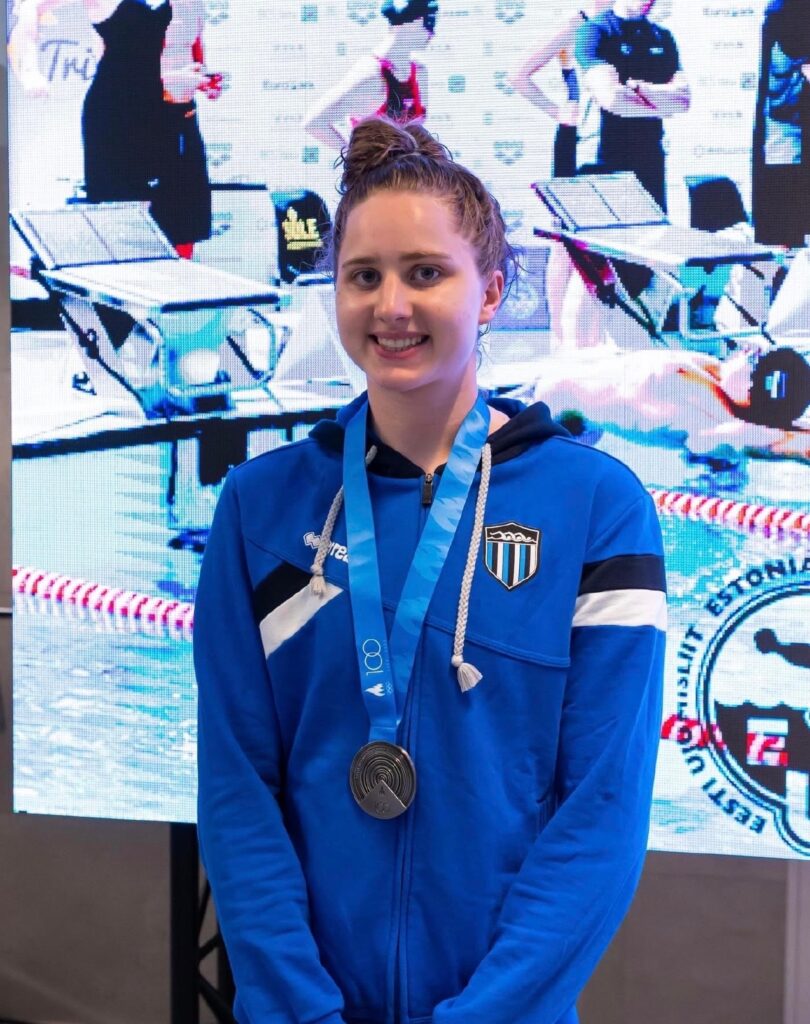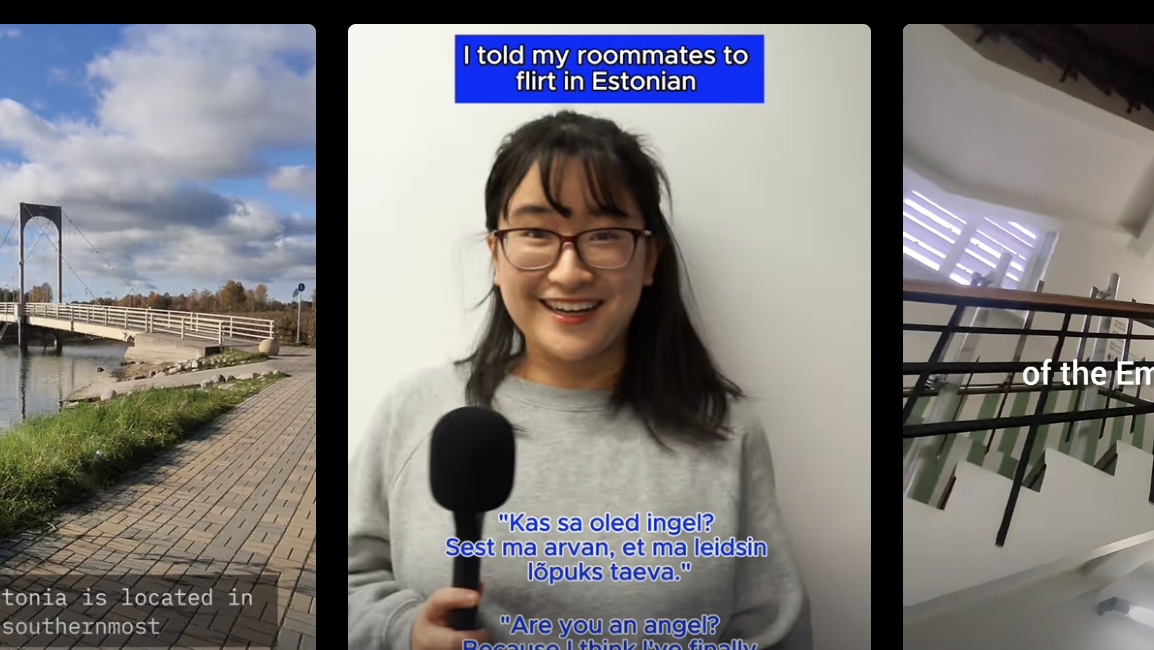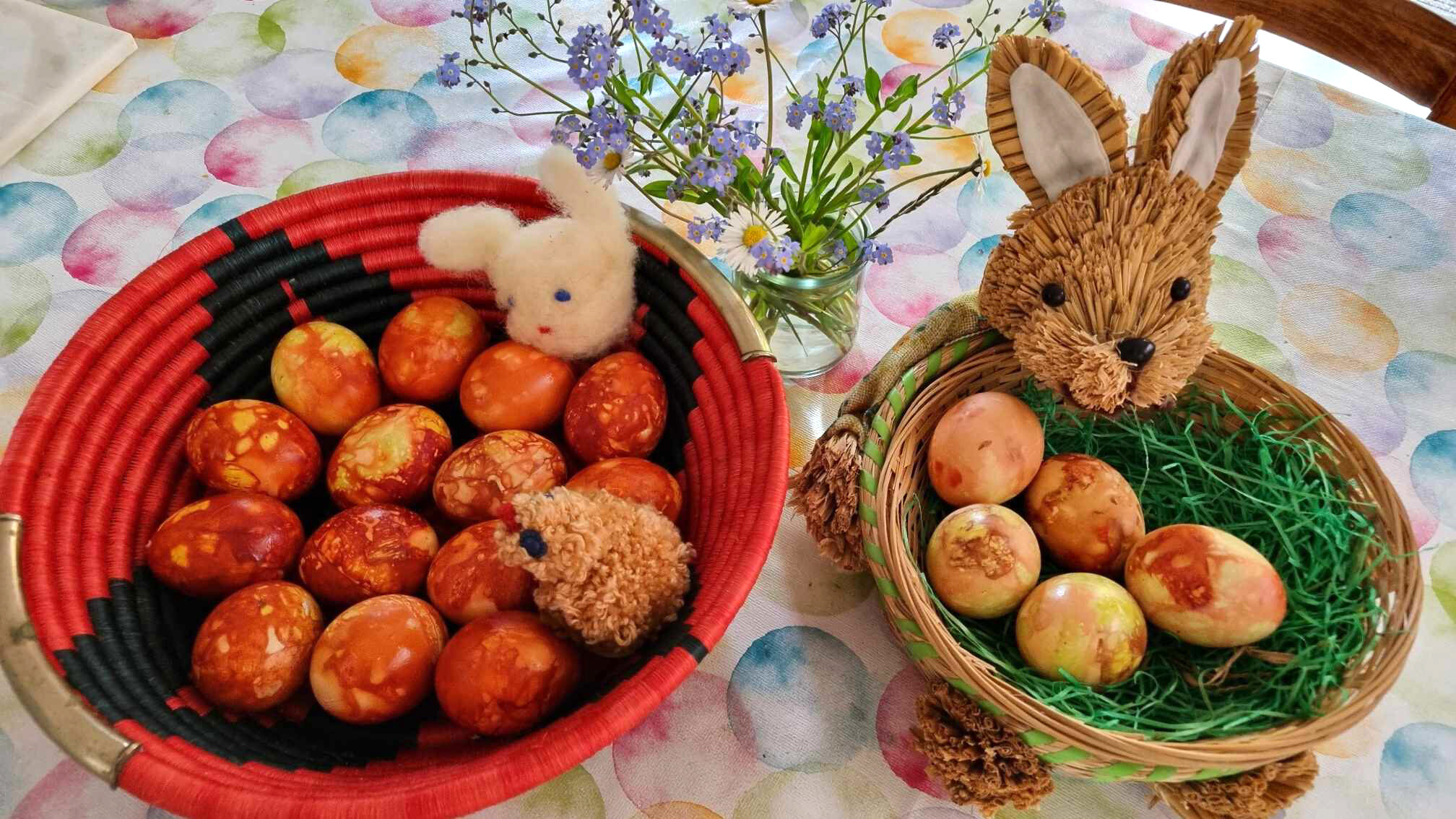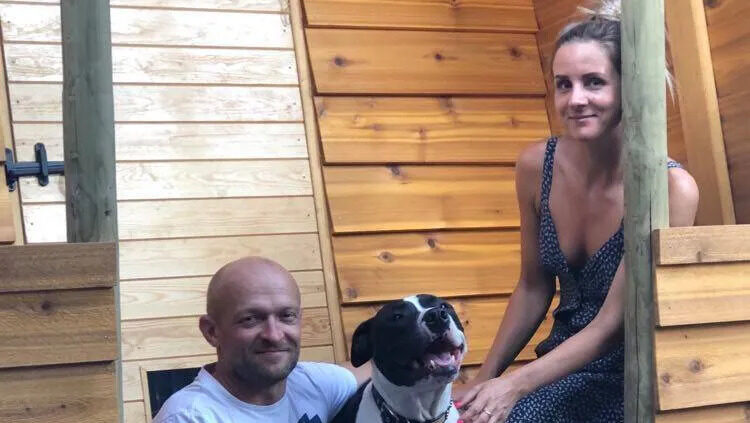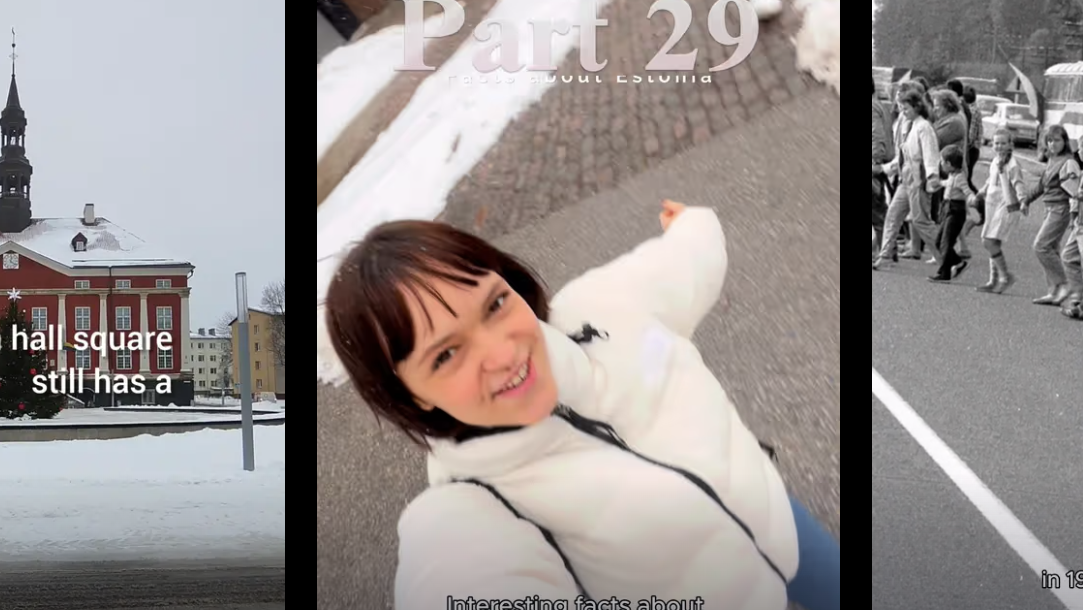Aleksa Gold (born in 2000) is well known to Eesti Elu readers as a swimmer at University of Toronto, someone who is active in the Canadian-Estonian community, and was recently featured in EstoCast's thirtieth episode.

After graduating from the University of Toronto (B.Sc. in Global Health and Environment) in spring 2023, Gold moved to Estonia. Gold sat down with Eesti Elu‘s Hillar Lauri in Maiasmokk Cafe in the Old Town of Tallinn and talked about her move to Tallinn. Here are some key takeaways about her experience of life in Estonia.
Previous visits to Tallinn
During her teenage years, Gold visited Tallinn numerous times as her uncle and cousins live there. When she was 16, she worked for a summer at her uncle's cafe in the Old Town of Tallinn. But none of these trips prepared her for—or put the idea into her mind of—moving to Estonia.
How she came to live in Estonia – and the key role that swimming played
Gold was swimming very seriously during her years of studying at the University of Toronto (2000-2023). When COVID-19 lockdowns began around the world, rules about swimming were stricter in Canada than they were in Estonia, so Gold moved to Estonia. In January 2021, to continue training in the pool, she moved to Estonia. She soon joined the Kalevi Ujumiskool (Kalev Swimming School) and began serious training with them.
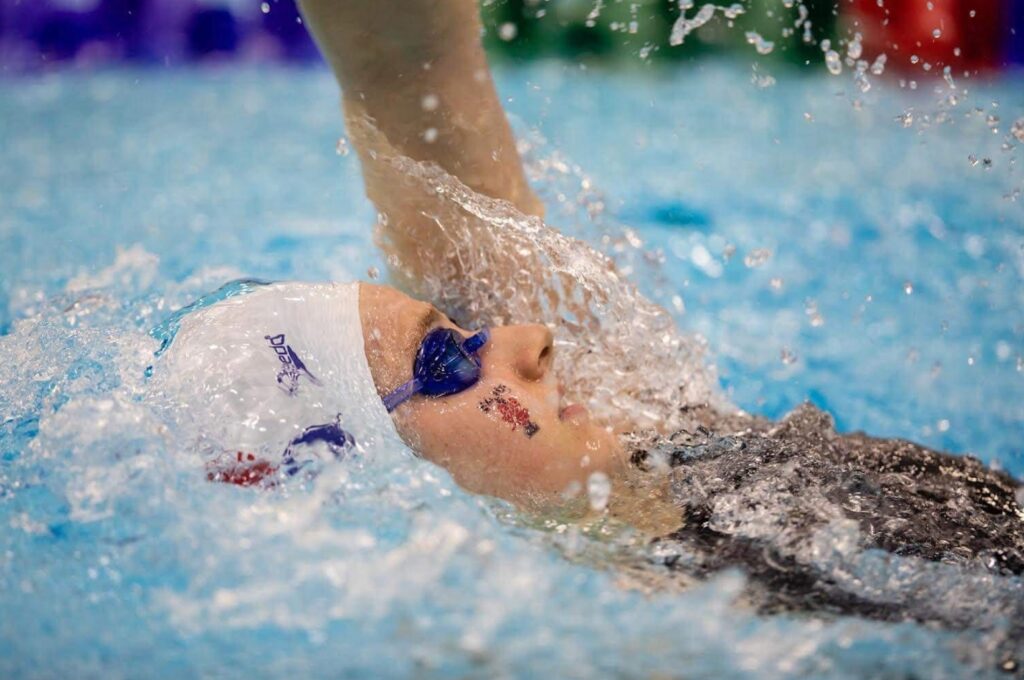
As an example of Gold's swimming achievements, in March 2022, she broke three Estonian women's swimming records in one week. She enjoyed training with this elite swim club and decided to return the following summer (April to August 2022) and in the summer of 2023, to train with them again. This has paid off, as this month (July 2023), Gold will be going to the World Aquatic Swimming Championships in Fukuoka, Japan as an official member of Estonia's national swim team.
Her motivation
Gold has not only enjoyed swimming in Estonia, but has enjoyed her time in Tallinn and has decided to stay in Estonia for some time.
Gold encourages younger Canadian and American Estonians to come to Estonia, either to study for some time at a university, to work for a summer, or to just move here for a while. On this topic, she notes how “In Jõekääru laager and Eesti Kool, we learned about this special place called Eesti. Why don't more young people now come here and explore it?“ She says that she has very much enjoyed returning to her roots and living in a more homogenous society (as opposed to Canada's more multicultural society).
Gold stated that she found Estonia to be “very welcoming.” Estonians here were surprised that she “returned” to her roots. However, she drew the comparison that, as Canada is multicultural and is used to people moving to Canada, Canadians go out of their way to include them and make them feel welcome. That same background does not exist in Estonia [HL: After five decades of occupation by Russians and Germans, it's not difficult to see why]. Gold said that when coming to Estonia, you have to try harder to blend in and make friends because you know Estonians are not in the habit of inviting people along. She also found it was not easy to know what impression you made, or who liked you, as people did not display emotions.
Do you need to speak Estonian before coming to Estonia?
Gold was asked if one needed to speak Estonian before coming to Estonia. She replied “No.” If you went to Eesti Kool or Jõekääru, that basic amount of Estonian you would have picked up is enough. When you are in Tallinn, you will learn more at work or with friends. She stated that all young people in Eesti spoke English, so even if one did not speak a word of Estonian, one would be fine socially. Gold thought that many jobs in Eesti required English speakers, so one could still find work even if one did not speak Estonian.
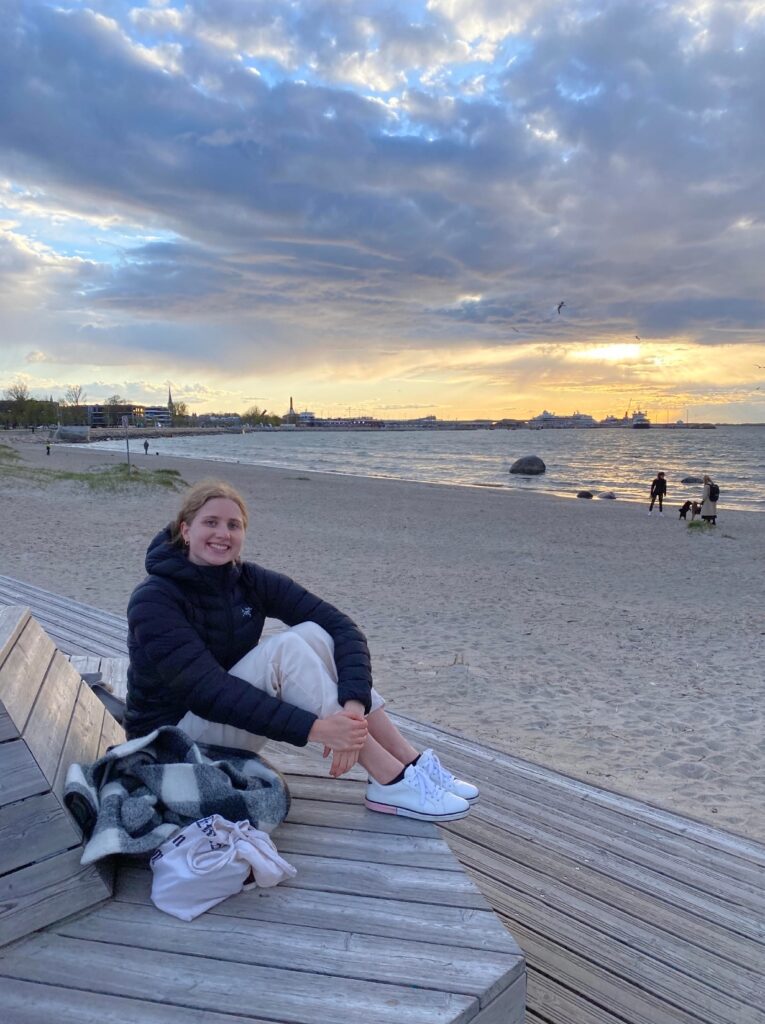
Although Gold lived on campus when attending University of Toronto, it was 20 minutes from her home. She felt she was starting her own life when she moved to Eesti and no longer lived so close to her parents. It was part of growing up.
Her sorority Filiae Patriae
Although Gold joined the sorority Korporatsioon Filiae Patriae in Toronto and is on the Estonian korp! Filiae Patriae email list, she has not been active in sorority life in Estonia. The Filiae Patriae events in Tallinn tend to clash with her swimming training times.
Estonian passport and ID card
Gold believes it is a good idea to have an Estonian passport before arriving in Estonia. She acquired an Estonian ID card once she was here [HL: which one needs to overcome all sorts of Estonian bureaucracy like giving an electronic signature, filing a tax return, etc.]. It is helpful if someone from work or an Estonian relative helps you through the administrative hurdles of obtaining an ID card. It would also be helpful if that same friend from work or a relative would go with you to a bank to open up a bank account.
Finding an apartment
Gold used the three most common Estonian real estate websites to find a rental apartment for herself. These three sites are: city24.ee , kv.ee and kinnisvara24.ee . She is currently renting a place in Vanalinn for € 600/month plus utilities (€ 80/month). Rental prices in the suburbs of Tallinn are considerably lower.
Finding a job
Gold thinks that the biggest hurdle holding back Canadian and American Estonians from coming to work and live in Estonia is the salary level. Foreign-born Estonians feared they would earn a significantly lower salary than in Canada or the US. She stated that upon closer analysis, this is not true. Comparing € 2,000/month vs. CAD 3,000/month, the Euro has a much higher exchange rate and the cost of living in Tallinn is cheaper. One could live just as good of a life in Tallinn with a lower Euro salary as in Toronto with a higher salary.
Gold mentioned that a number of Canadian/US Estonians who had studied in Canada have found jobs at Bolt or Wise. As Tallinn is the worldwide headquarters of Bolt, it has quite a large office and work is in English. Also, many people who had grown up outside of Estonia have been promoted rapidly at Wise. Gold also spoke very highly of the Work in Estonia website.
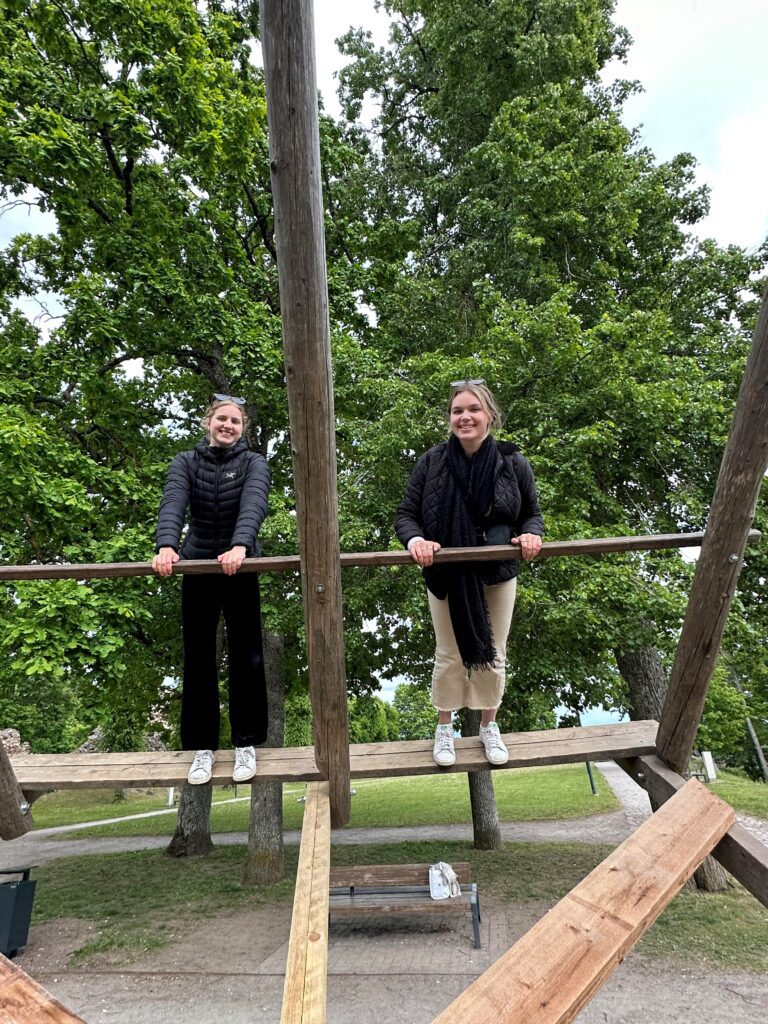
Travel while living in Estonia
Gold travels abroad a fair bit with swimming competitions, but in Estonia, she says it is easy to travel with friends to Helsinki by ferry, or to take the bus or train to destinations in Estonia (Tartu, Pärnu, etc.). Or even to go hiking in the marshes of Estonia.
In other words, Gold encourages young women and men her own age to take the plunge (no pun intended), to come and spend more than a week or two getting to know your roots better.
